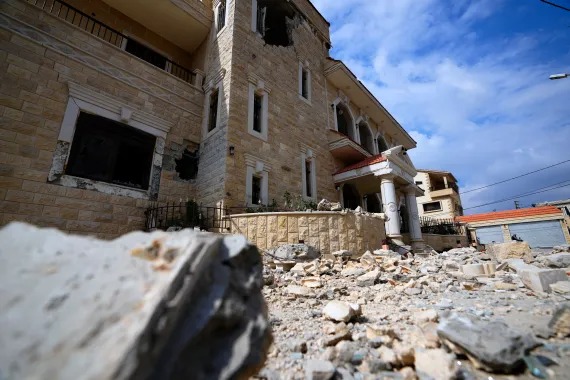The ongoing Israel-Hamas war has set off alarm bells in south Lebanon, triggering a mass exodus of thousands of people from border areas. The fear of Israeli missiles raining down upon their homes has sent a wave of panic through the region, compelling families to head north in search of safety. While the conflict rages in Gaza, its reverberations have begun to threaten neighboring nations, particularly Lebanon, even though Hezbollah has not formally entered the fray.
Escaping the Unpredictable Threat
Families like Anna’s, a kindergarten teacher from Barich, have found themselves fleeing their homes and workplaces to escape the looming danger of Israeli missiles. As Israel intensifies its offensive on Gaza following Hamas’s audacious attack, the anxiety has extended across borders to southern Lebanon. With Hezbollah’s potential involvement hanging in the balance, thousands are now living in uncertainty. Marie, a 28-year-old wedding planner from a southern village, expressed the collective sentiment, “Our lives have stopped, and we don’t know when they’ll return to normal.”
A Perilous Reminder of the Past
Lebanon’s shared border with Israel spans 81 kilometers, with around 600,000 people residing within its proximity. Despite the technical state of war since Israel’s creation in 1948, relative peace prevailed until the 2006 conflict. The current escalation is viewed with heightened concern as Hezbollah’s capabilities have grown, and its leader, Hassan Nasrallah, claims a sizable force of 100,000 fighters. Memories of the 2006 war still haunt residents, prompting an exodus to safer regions like Beirut.
Economic and Social Fragility
South Lebanon, historically neglected by the state, faces higher poverty levels and lower salaries compared to the national average. The region relies heavily on remittances from relatives abroad, making an impending conflict even more precarious. Lebanon, already grappling with a severe economic crisis, has seen its currency lose over 90 percent of its value, causing widespread poverty. Hussein Cheaito, an economist, points out the detrimental economic consequences of a war, making healthcare and education even more inaccessible for the region’s economically insecure population.
Staying Put Amid Uncertainty:
While a mass migration is underway, not everyone is fleeing their homes. Some residents remain to work or due to a lack of alternatives, while others stay out of defiance, believing they are not in immediate danger. Mohammad Farhat, a resident from Arab Salim, who has lived through past conflicts, remains defiant, stating, “We’re not scared this time.” Oussama Haddad, who resides near the southern border, prefers to stay in his ancestral home, highlighting Lebanon’s already dire conditions, saying, “Are we not in the stone age already?”
As south Lebanon braces for an uncertain future amid the escalating Israel-Hamas conflict, the sense of powerlessness prevails among its residents, and a cloud of uncertainty continues to loom over the region. While the threat of war remains imminent, the people of south Lebanon grapple with the stark realities of economic hardship and a precarious geopolitical landscape.
















